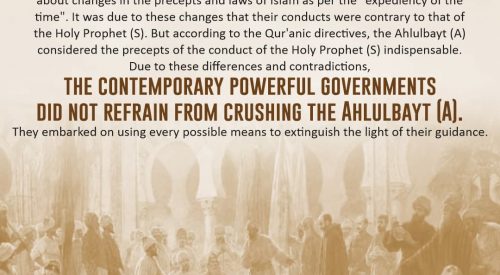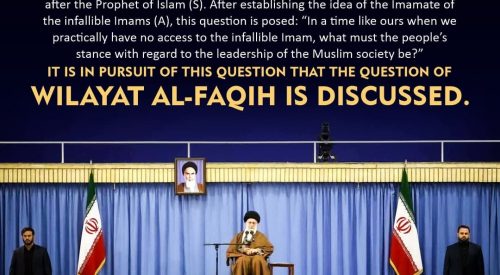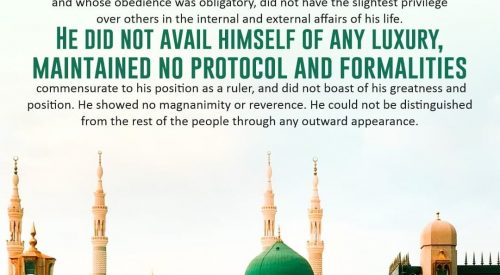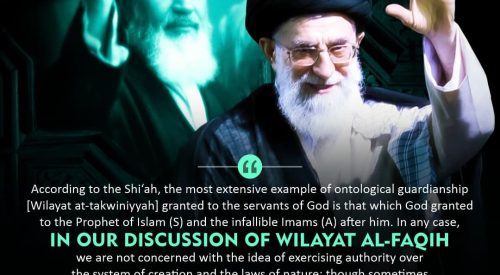The [so-called] “Islamic governments”, during the lives of Ahlulbayt (A), brought about changes in the precepts and laws of Islam as per the “expediency of the time”. It was due to these changes that their conducts were contrary to that of the Holy Prophet (S). But according to the Qur’anic directives, the Ahlulbayt (A) considered…
Read More »
The Shiah believe that the infallible Imam…
The Shiah believe that the infallible Imam has the right to lead the society after the Prophet of Islam (S). After establishing the idea of the Imamate of the infallible Imams (A), this question is posed: “In a time like ours when we practically have no access to the infallible Imam, what must the people’s…
Read More »
The Holy Prophet (S), who by Allah’s order…
The Holy Prophet (S), who by Allah’s order was the ruler and commander and whose obedience was obligatory, did not have the slightest privilege over others in the internal and external affairs of his life. He did not avail himself of any luxury, maintained no protocol and formalities commensurate to his position as a ruler,…
Read More »
When the Holy Prophet (S) openly invited…
When the Holy Prophet (S) openly invited people to Islam, on the very first day he mentioned about his relatives, embracing Islam and nominated ‘Ali (A) as his successor. He manifestly specified ‘Ali’s (A) succession in Ghadir Khumm and elsewhere during the last days of his life. In spite of this fact, the people designated…
Read More »
According to the Shi‘ah, the most extensive…
According to the Shi‘ah, the most extensive example of ontological guardianship [Wilayat at-takwiniyyah] granted to the servants of God is that which God granted to the Prophet of Islam (S) and the infallible Imams (A) after him. In any case, in our discussion of wilayat al-faqih we are not concerned with the idea of exercising…
Read More »
- « Previous Page
- 1
- …
- 14
- 15
- 16
- 17
- 18
- …
- 24
- Next Page »




